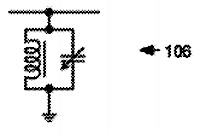This article is more than 1 year old
Ready for ANOTHER patent war? Apple 'invents' wireless charging
Wait, it's already a thing? Sorry, can't hear you over the sound of our lawyers
Apple is trying to patent wireless charging, claiming its magnetic resonance tech is new and that it can do it better than anyone else. This would be cool if its assertions were true.
Apple's application, numbered 20120303980, makes much of its ability to charge a device over the air at a distance of up to a metre, rather than requiring close proximity. The Alliance For Wireless Power, which also touts long-range juicing, will no doubt be comparing Apple's designs to its own blueprints.
The alliance - of which chip biz Qualcomm and Apple rival Samsung are members - reckons distance charging is its unique selling point, allowing gadgets to top up battery power from inside a pocket or as one walks around an office. It's an argument so compelling that the competing Consortium for Wireless Power promptly extended its standard to encompass the same idea.

Is it a bird, is it GCSE electronics?
No, it's part of Apple's patent application
Apple's patent application was filed in November 2010, before the alliance was established, but well after tech startup WiPower applied for its patent on the very concept of wireless charging in 2008. WiPower was acquired by Qualcomm and its patents are the bedrock of the alliance's standard, along with some intellectual property from Samsung.
Meanwhile, the patents behind the Consortium for Wireless Power's technology are up for grabs: Alticor, which only developed the technology so that its subsidiary Amway could flog wireless water filters, is open to offers for eCoupled, the company that owns the protected designs. Perhaps Apple should be giving them a call.
And don't forget the Nokia Lumia 920, like a few other handsets already out there, already do wireless charging.
Regardless of who ends up with eCoupled, the world ought to brace itself for another epic patent battle - although not quite yet: the public is still very unsure it wants wireless charging and the technology isn't built into enough coffee shops, airport lounges and car dashboards to gain a critical mass of popularity, but it should give the lawyers plenty of business by the time the current disputes fizzle out. ®
